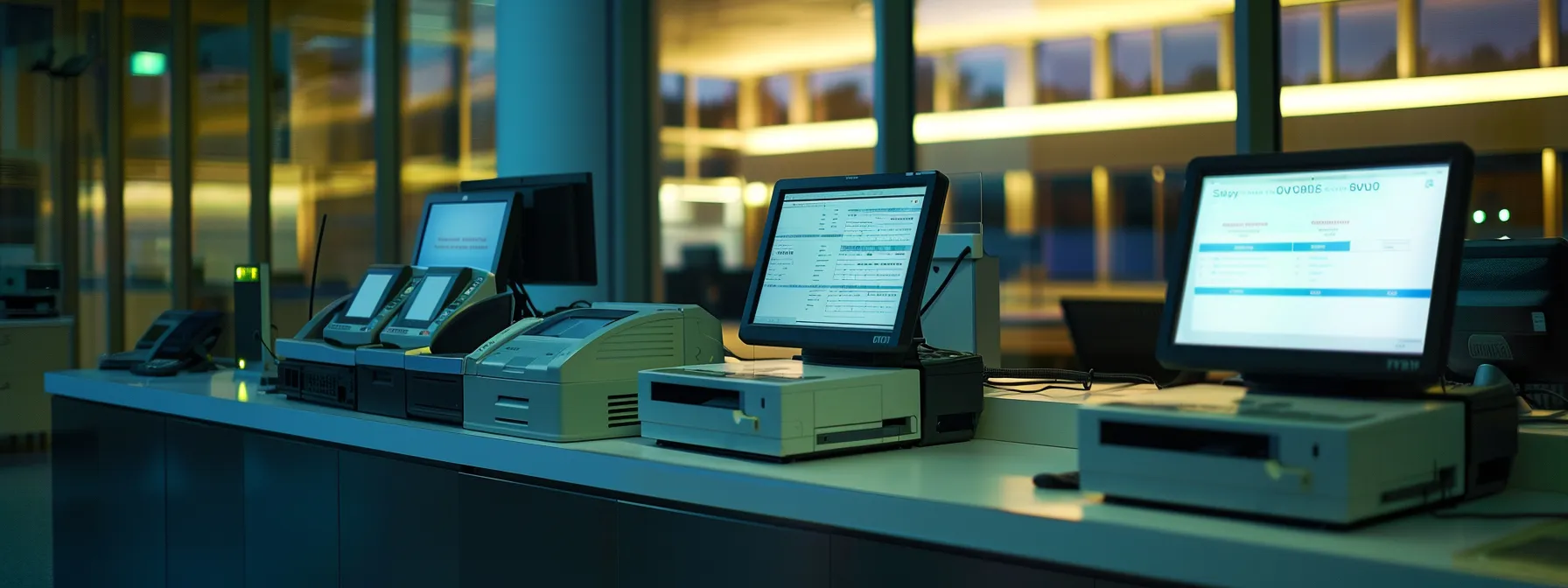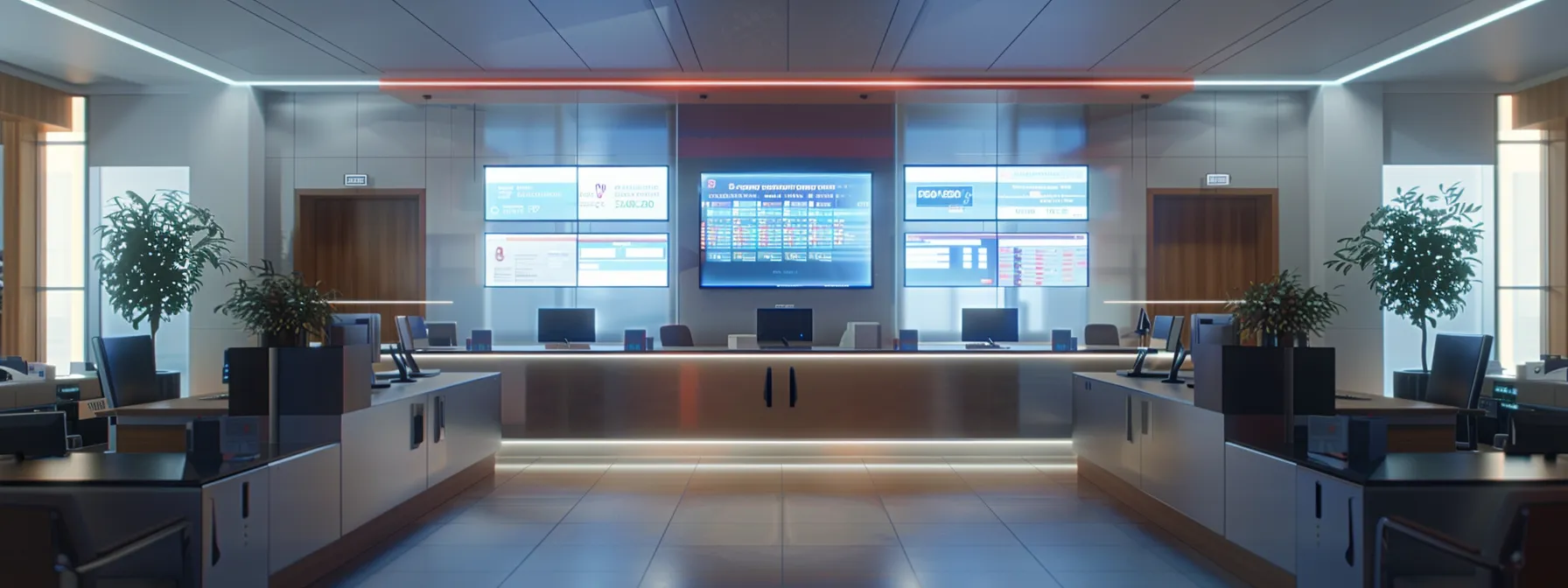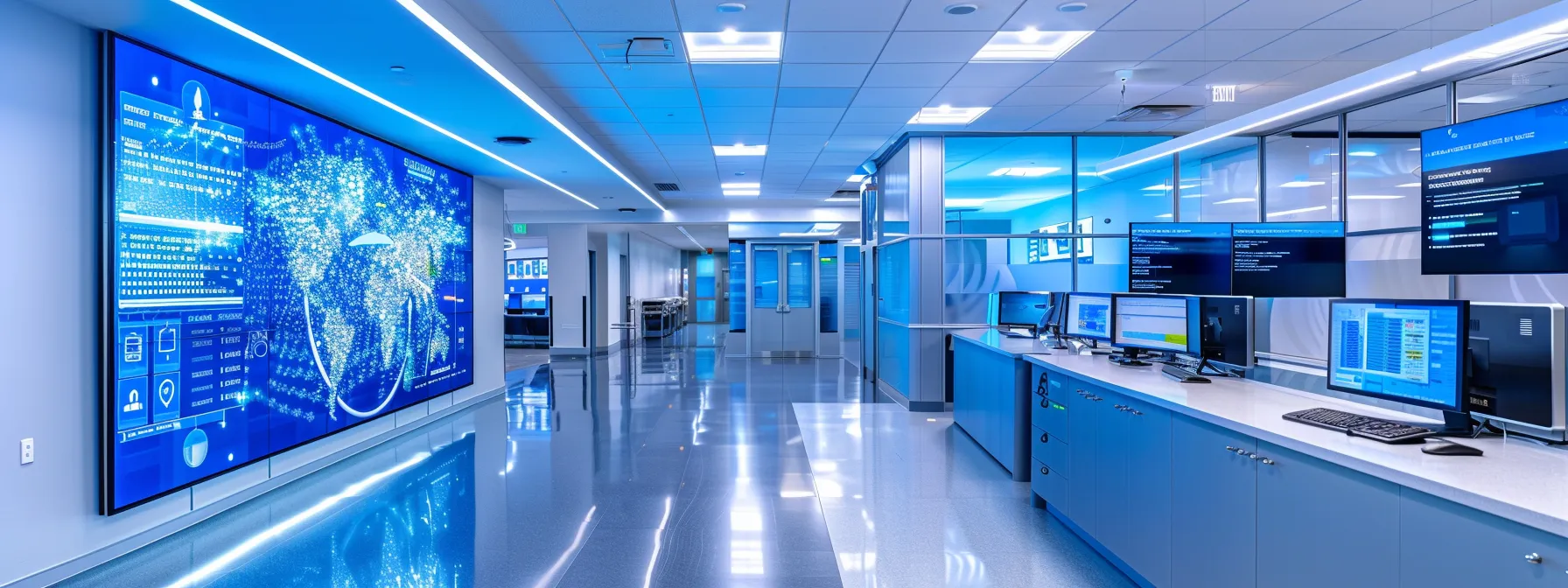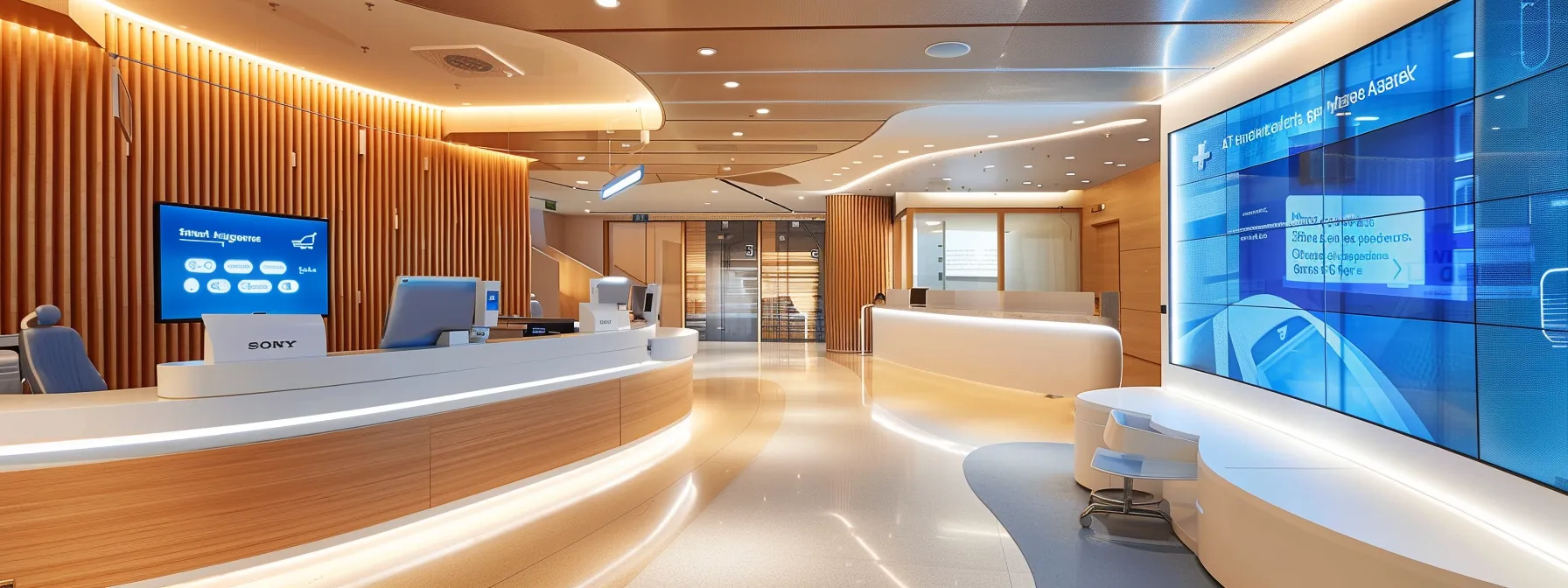Revolutionizing Healthcare Payment Processing Solutions
Efficient healthcare payment processing is often considered a hassle for many providers and billing professionals. This blog post will explore the key features of advanced healthcare payment processing solutions and how automation enhances overall efficiency. Readers will gain insights into transformative technologies that address common challenges and streamline the payment landscape. By understanding these solutions, healthcare organizations can reduce administrative burdens and improve cash flow, ultimately leading to better financial performance in today’s demanding environment.
Understanding the Importance of Efficient Healthcare Payment Processing Solutions

Efficient healthcare payment processing solutions play a crucial role in revenue cycle management, enabling providers to optimize cash flow and reduce claim denials. By streamlining these processes, healthcare organizations can ensure timely reimbursements while minimizing errors associated with manual entry and tracking.
These solutions also enhance the security of protected health information, reducing the risk of fraud and ensuring compliance with industry regulations. With automated systems in place, providers can securely process payments, safeguarding patient information and fostering trust in the healthcare system.
Furthermore, employing reliable payment processing systems facilitates a better patient experience. By providing clear billing statements and various payment options tied to their email address, patients can navigate their financial responsibilities with ease, encouraging timely payments and improving overall satisfaction with healthcare services.
Key Features of Advanced Healthcare Payment Processing Solutions

Real-time transaction processing stands out as a vital feature, ensuring prompt and accurate payments, which significantly impacts cash flow. Integration with electronic health records (EHR) enhances seamless communication between payment processing partners and clinical data, streamlining operations. Meanwhile, robust security measures safeguard sensitive information, aligning with the payment card industry’s standards and maintaining compliance, all accessible via a secure web browser.
Real-Time Transaction Processing
Real-time transaction processing is a cornerstone of modern payment processing solutions in the healthcare industry. By facilitating immediate payment confirmations, these systems mitigate risks associated with claim delays and enhance revenue management practices. Healthcare Transaction Services benefit from this speed, ensuring that providers experience quicker reimbursements while maintaining compliance with payment card industry standards, which ultimately strengthens financial stability and boosts patient satisfaction.
Integration With Electronic Health Records
Integration with electronic health records (EHR) represents a significant advancement in healthcare payment processing solutions. By linking health information technology with payment systems, providers can streamline billing processes, allowing for seamless wire transfers and improving transaction efficiency. This integration not only facilitates better management of patient debt but also enhances merchant services, enabling healthcare organizations to utilize card readers efficiently and provide various payment options that meet patient needs.
Robust Security Measures
Robust security measures are essential in healthcare payment processing solutions, particularly with the rising emphasis on digital transformation. Utilizing platforms like Dharma Merchant Services and Chase Payment Solutions ensures that all electronic funds transfers are conducted securely, protecting sensitive patient information. These measures also help mitigate chargeback risks by incorporating strong authentication procedures, thereby reinforcing a healthcare provider’s credibility and trustworthiness in the eyes of patients.
Enhancing Efficiency With Automation in Payment Processing

Automating billing and claims management significantly improves efficiency in healthcare payment processing. By streamlining patient payment workflows and reducing administrative burdens, providers enhance accounting accuracy and speed up reimbursement cycles. Furthermore, implementing electronic billing practices protects personal data through advanced data security measures, ensuring both compliance and trust in the system. These improvements lead to a more effective and reliable financial operation.
Automating Billing and Claims Management
Automating billing and claims management is crucial for any healthcare organization aiming to enhance efficiency and streamline processes. By incorporating advanced healthcare payment solutions that connect to a payment gateway, organizations can facilitate quicker transaction completions. Utilizing features like text messaging for reminders not only keeps patients informed about their payment responsibilities but also helps boost revenue by encouraging timely action and reducing the likelihood of delayed payments.
Streamlining Patient Payment Workflows
Streamlining patient payment workflows is essential in optimizing healthcare payment processing solutions within the realm of digital health. By implementing automated systems that accept payments efficiently, healthcare providers can enhance the patient experience while ensuring compliance with the Health Insurance Portability and Accountability Act (HIPAA). Utilizing advanced encryption methods, healthcare organizations can safeguard sensitive financial information, which not only builds trust with patients but also fosters a smoother billing process and encourages timely payments.
Reducing Administrative Burdens
Reducing administrative burdens in medical billing is essential for enhancing overall operational efficiency within healthcare organizations. By utilizing automation and advanced analytics, payment processors can streamline repetitive tasks, allowing billing professionals to focus on higher-level responsibilities. Implementing an omnichannel approach not only simplifies payment collection but also improves communication with patients, ensuring they receive timely updates and support, ultimately leading to a more effective revenue cycle management.
Transformative Technologies Reshaping Healthcare Payments

Artificial Intelligence (AI) is enhancing productivity in healthcare payment processing by optimizing claims management and improving fee accuracy. Blockchain technology is revolutionizing secure transactions, particularly in electronic data interchange, ensuring data integrity. Cloud computing provides the scalability necessary for flexible spending accounts, allowing organizations to adapt swiftly to changing needs while maintaining compliance and efficiency.
Artificial Intelligence in Payment Processing
Artificial Intelligence (AI) is revolutionizing healthcare payment processing by optimizing transaction accuracy and enhancing operational efficiency. By integrating AI-driven technology into payment systems, organizations can analyze consumer behavior and adjust pricing strategies based on real-time data. Furthermore, adherence to the Payment Card Industry Data Security Standard (PCI DSS) ensures that sensitive financial information remains protected, fostering trust between healthcare providers and consumers while improving cash flow management.
Blockchain for Secure Transactions
Blockchain technology plays a pivotal role in enhancing security within healthcare payment processing solutions, providing a transparent and immutable record for transactions. By utilizing blockchain, healthcare organizations can streamline payment processing with confidence, knowing that sensitive financial information is protected from fraud. Adopting solutions that integrate blockchain, such as virtual terminals and comprehensive software development frameworks, enables providers to foster trust among patients while efficiently managing their financial operations.
Cloud Computing for Scalability
Cloud computing plays a critical role in enhancing scalability within healthcare payment processing solutions. By leveraging an automated clearing house, healthcare organizations can streamline their payment processes, allowing for real-time transaction visibility and improved data management. Integration with electronic health records enables seamless communication between various systems, ensuring that the healthcare payment system remains adaptable to evolving industry needs, ultimately leading to more efficient healthcare payment processing.
Addressing Common Challenges in Healthcare Payment Processing

Overcoming resistance to change is a significant hurdle in modern healthcare payment processing. Additionally, managing data privacy regulations ensures compliance while fostering trust among patients. Ensuring accessibility for all patients, through solutions like mobile payment options and a user-friendly mobile app, enhances the overall experience. Each of these areas addresses key challenges that payment processors must navigate to optimize healthcare transactions.
Overcoming Resistance to Change
Overcoming resistance to change in healthcare payment processing requires a strategic approach that involves effective customer support and education. By emphasizing the benefits of modernized workflows and the integration of advanced accounting software, healthcare providers can demonstrate how these solutions streamline invoicing and reduce administrative burdens. Investing in healthcare software development enables organizations to create tailored solutions that address existing pain points, fostering a smoother transition and greater acceptance among staff and patients alike.
Managing Data Privacy Regulations
Managing data privacy regulations in the healthcare industry is critical for maintaining patient trust and ensuring compliance. Healthcare organizations must emphasize adherence to privacy standards, particularly when implementing modern payment solutions like Apple Pay or other digital wallets. By prioritizing strong data protection measures during the adjudication process, organizations can safeguard sensitive credit information, reduce risks of data breaches, and enhance overall financial security in payment processing.
Ensuring Accessibility for All Patients
Ensuring accessibility for all patients in healthcare payment processing is essential for fostering inclusivity and improving the patient experience. By offering payment options tied to a merchant account that accommodates various preferences, such as mobile payments and online payment portals, organizations can simplify financial transactions. Additionally, utilizing cloud computing enables seamless connectivity, allowing patients to easily link their bank account for automatic payments, which enhances convenience and encourages timely transactions.
Evaluating Healthcare Payment Processing Solutions

Evaluating healthcare payment processing solutions involves a thorough comparison of different providers, alongside assessing costs versus benefits to ensure financial efficiency. Identifying best practices for implementation will further enhance these systems’ effectiveness. Each of these areas provides critical insights for healthcare organizations, guiding them toward making informed decisions that optimize payment processing and revenue cycle management.
Comparing Different Providers
When comparing different healthcare payment processing providers, it is essential to assess their features, security measures, and integration capabilities. For instance, organizations should look for systems that offer real-time transaction processing and robust security protocols to safeguard sensitive patient information. Evaluating how well a provider integrates with existing electronic health records (EHR) can also lead to significant operational efficiencies, ultimately helping healthcare entities to improve their revenue cycle management.
Assessing Costs vs. Benefits
Assessing costs versus benefits in healthcare payment processing solutions is fundamental for organizations aiming to enhance their revenue cycle management. By analyzing both initial investments and long-term savings, healthcare providers can better understand the financial impact of modern payment systems. For instance, a healthcare organization that invests in automated billing and claims management may face upfront expenses but can expect reduced administrative costs and improved cash flow over time, ultimately reinforcing the organization’s financial health.
Identifying Best Practices for Implementation
Identifying best practices for implementing healthcare payment processing solutions is essential for maximizing efficiency and effectiveness. Organizations should prioritize a thorough assessment of their current systems and workflows, ensuring that the chosen solution aligns with their operational goals and simplifies billing processes. Engaging with stakeholders during the implementation phase fosters transparency and encourages user adoption, which is critical for achieving seamless integration and minimizing disruptions in revenue cycle management.
The Future of Healthcare Payment Processing Solutions

Trends in payment technologies are evolving rapidly, presenting new opportunities for healthcare organizations to enhance their payment processing solutions. Preparing for regulatory changes will be vital to maintain compliance and protect patient information. Additionally, understanding and adapting to patient expectations will further improve satisfaction, ensuring a smooth transition toward more efficient healthcare transaction systems.
Trends to Watch in Payment Technologies
As healthcare payment technologies continue to evolve, organizations are increasingly adopting mobile payment solutions, reflecting patient preferences for convenience and speed. The integration of Artificial Intelligence (AI) enhances transaction accuracy by analyzing consumer data, allowing providers to tailor their services effectively. Staying attuned to these trends enables healthcare organizations to maintain compliance and streamline operations, ultimately enhancing the patient experience and ensuring timely reimbursements.
Preparing for Regulatory Changes
Preparing for regulatory changes in healthcare payment processing is essential for organizations aiming to remain compliant and protect sensitive patient information. As regulations evolve, healthcare providers must implement adaptive technologies that not only meet current requirements but also accommodate future updates. This proactive approach can include regular audits of payment systems, updates to security protocols, and ongoing training for staff, ensuring that every aspect of payment processing aligns with industry standards while fostering patient trust and operational efficiency.
Adapting to Patient Expectations
Adapting to patient expectations is essential for healthcare organizations aiming to enhance their payment processing solutions. As patients increasingly prefer seamless and convenient payment options, providers must implement systems that allow easy access to billing information and encourage timely payments. By offering mobile payment solutions and user-friendly online portals, healthcare organizations can improve patient engagement, streamline financial transactions, and ultimately elevate the overall experience for patients navigating their healthcare costs.
Conclusion
Revolutionizing healthcare payment processing solutions is vital for enhancing operational efficiency and optimizing revenue cycles. By embracing automation, real-time transaction processing, and robust security measures, healthcare organizations can significantly reduce claim denials and improve cash flow. These advancements not only secure sensitive patient information but also foster a better patient experience through clear billing and multiple payment options. Ultimately, investing in modern payment solutions positions healthcare providers to thrive in an increasingly digital landscape, ensuring compliance and patient satisfaction.

